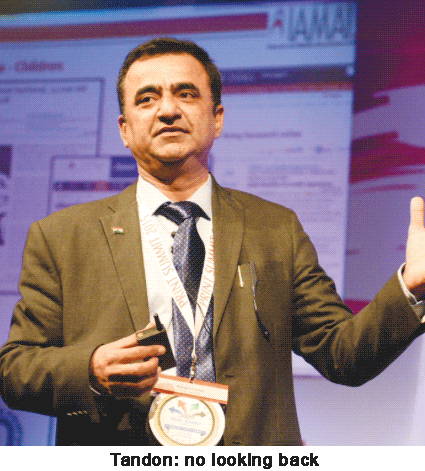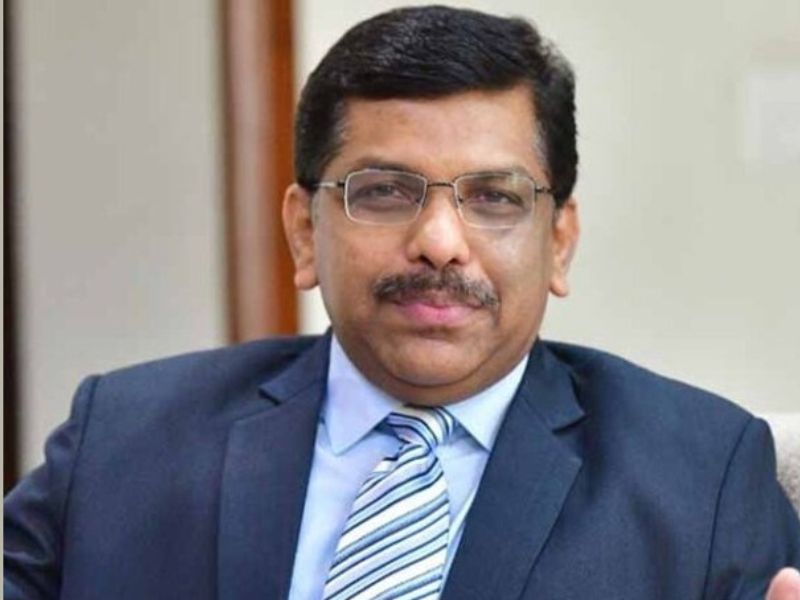With global expenditure on cyber security systems expected to cross $1 trillion during 2017-21, cyber security experts (aka ethical hackers) are in great demand
 With India’s Internet user base expanding fast — 432 million users as of December 2016, according to a report of the Internet and Mobile Association of India — and a fast-rising number of individuals and firms transacting business through e-commerce, Internet banking and e-payment websites, a wealth of once unimaginable financial and personal information is available on the worldwide web. On the flip side, the fast growth of e-commerce traffic has attracted the attention of cyber criminals and frauds who spy and hack into citizens’ accounts and steal personal and financial information. Cyber criminals aka hackers, insert malware or viruses into computers to access financial information and steal from banks and other accounts by unravelling passwords and modifying financial data.
With India’s Internet user base expanding fast — 432 million users as of December 2016, according to a report of the Internet and Mobile Association of India — and a fast-rising number of individuals and firms transacting business through e-commerce, Internet banking and e-payment websites, a wealth of once unimaginable financial and personal information is available on the worldwide web. On the flip side, the fast growth of e-commerce traffic has attracted the attention of cyber criminals and frauds who spy and hack into citizens’ accounts and steal personal and financial information. Cyber criminals aka hackers, insert malware or viruses into computers to access financial information and steal from banks and other accounts by unravelling passwords and modifying financial data.
Fear of banking and financial fraud and theft of valuable personal and intellectual data has prompted banks, corporates, and governments to heavily invest in cyber security. According to the California-based Cyber Security Ventures, global expenditure on cyber security systems is expected to cross $1 trillion (Rs.66 lakh crore) during the period 2017-2021. Consequently, there’s rising demand for cyber security experts (aka ethical hackers) who can anticipate, detect and prevent cyber-attacks, and protect confidential data networks.
Study programmes
Higher secondary school students with basic knowledge of software, database and networking are eligible for admission into the 40-hour ethical hacking and network penetration testing programme of the Indian School of Ethical Hacking, Kolkata. Though a higher secondary qualification is sufficient to enroll in most online IT security study courses, the ideal qualification is an undergraduate degree (B.Sc or BE in computer science/cyber security) followed by a specialised diploma/certificate/Masters programme in cyber security. The University of Technology and Management, Shillong is one of few institutions to offer a four-year B.Tech programme in cyber security.
Among the prominent institutions offering postgraduate degrees in cyber security are SRM University, Chennai; PES Institute of Technology, Bangalore; P.S.G College of Technology, Coimbatore; Amrita University, Coimbatore and Raksha Shakti University, Ahmedabad. The Indian Computer Emergency Response Team (CERT-In) of the Union ministry of electronics and information technology also offers certification to IT professionals.
Pay & progression
With institutional and corporate demand for cyber crime professionals rising at the rate of 200 percent per year, this is a rewarding profession. Certified freshers start at Rs.6-7 lakh per annum and after acquiring two-three years of hands-on experience, remuneration packages could swell to Rs.1-2 lakh per month, with the sky being the limit for competent self-employed professionals.
Professional profile
“In the new world order of the Internet and digital transactions, security has become the biggest anxiety issue of web-user communities worldwide. Therefore, the demand for qualified cyber monitoring professionals has spiralled with banks, corporates, and governments clued-up and focused on protecting clients and preventing data theft and other cyber attacks,” says Rakshit Tandon, a Noida-based well-known cyber security expert and consultant of the Internet and Mobile Association of India (IAMAI), a non-profit body representing the interests of online and mobile phone value added services companies.
A science graduate of Agra College and a computer science postgrad of Delhi University, Tandon developed deep interest in computers in his school years. In 1998, he promoted Tandons Solution Provider to offer customised IT solutions and in 2004, expanded the company’s ambit to cover cyber security after the UP Law Enforcement Agency sought his expertise to solve the case of a young girl being blackmailed on an Internet chat website. Since then, there’s been no looking back for this cyber security evangelist. Currently, Tandon is visiting faculty at the CBI Academy, Ghaziabad and a trustee of the Mumbai-based Cyber and Law Foundation.
“This vocation requires the aptitude to continuously learn and update skills to keep pace with and checkmate the rising army of cyber criminals. My advice to aspiring cyber security professionals is not to quit their education to pursue ethical hacking, as top corporates prefer to hire experts with good education rather than people who shoot to fame with a hacking stint,” says Tandon, a two-time winner of the Karamveer Chakra Award (2015-16) for his contribution to cyber security.
(Odeal D’Souza in association with Univariety, Hyderabad)
























